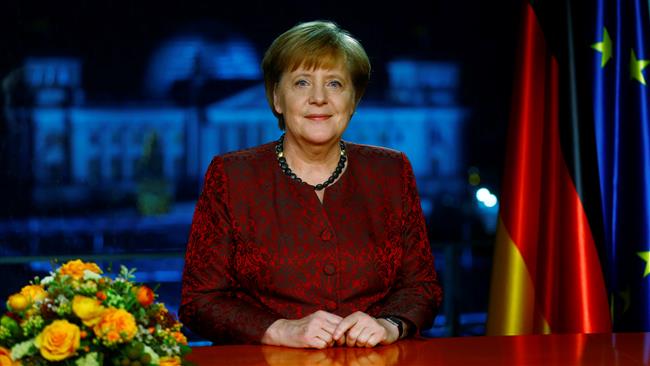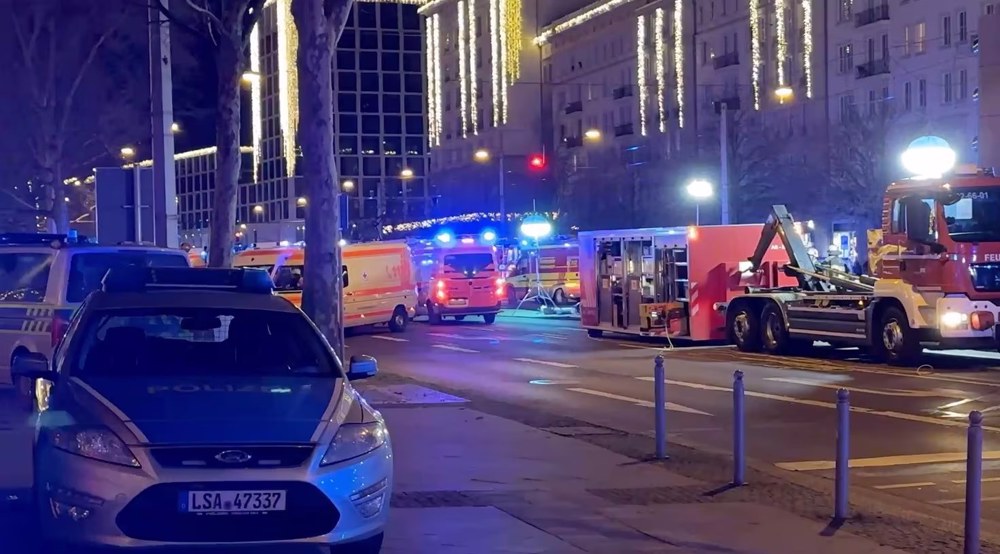Germany’s Merkel vows to address political rift
German Chancellor Angela Merkel has vowed to address ongoing political divisions in Germany by prioritizing social cohesion and swiftly forming a new government.
In her annual New Year’s address on Sunday, Chancellor Merkel said Germans had rarely been so split over the changes taking place in their society, adding that she was committed to helping tackle the challenges of the future by working rapidly to build a stable government.
“The world is not waiting for us. We must create the conditions now that ensure that Germany continues to prosper in 10, 15 years,” the conservative leader said. “And Germany will only prosper if its success serves all people and improves and enriches our lives.”
Among the priorities that Merkel mapped out in her speech were increased investments in security and defense, improved healthcare and education, and efforts to overcome growing urban-rural disparities.
The German chancellor said she had heard different views regarding the mending of the political rift in the country over the past year and that many conservatives had questioned her leadership. She said German citizens were concerned about social cohesion more than ever before while some praised the country’s diverse and open society.
The 63-year-old leader of the center-right Christian Democratic Union (CDU) party also said that Germans feared growing crime and violence, complained about a lack of doctors in rural areas, and worried about how to manage the influx of refugees.
“Both are realities in our country: the success and the optimism, but also the fears and the doubts. For me, both are impetus,” Merkel said.
The German leader also stressed the need for European countries to engage in further cooperation and bolster the continent’s external boundaries and security.

Germany has been in political limbo since elections in September, which saw heavy losses for the centrist “grand coalition” that has been ruling the country for the past four years.
Merkel, seeking a fourth term in office, has been looking to form a coalition with the center-left Social Democrats (SPD) after her center-right bloc lost some support to the far right Alternative for Germany (AfD) Party in the September 24 polls and her attempts to form a three-way tie-up with the pro-business Free Democrats (FDP) and the Greens failed.
A new opinion poll released on Saturday showed that nearly two-thirds of all Germans would call for Merkel’s resignation if upcoming coalition talks with the SPD, scheduled to commence on January 7, also failed.
Araghchi: Iran-Russia strategic deal step toward ‘more just world’
UNRWA unraveled amid Israel's allegations, reduced intl. support
Palestinian journalist, a Sobh Media Festival awardee, killed in Gaza hours before truce
Jan. 15: ‘Axis of Resistance’ operations against Israeli occupation
VIDEO | Fears, hope in Gaza amid intensified ceasefire efforts
VIDEO | Press TV's news headlines
Hamas: Ceasefire agreement result of steadfastness, resistance in Gaza over 15 months
Hamas thanks Iran, Resistance Front following achievement of ceasefire in Gaza










 This makes it easy to access the Press TV website
This makes it easy to access the Press TV website